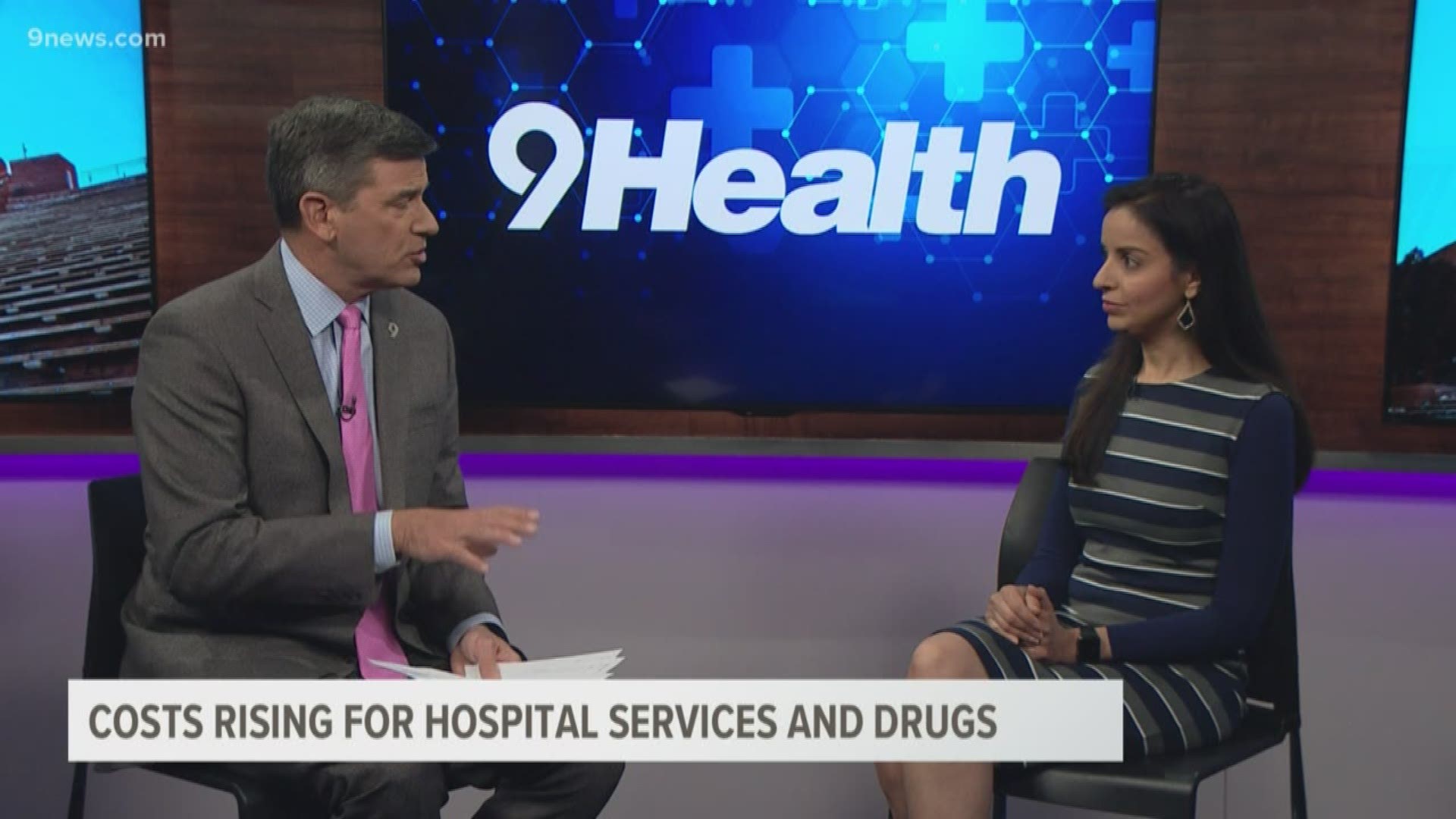DENVER — US health care spending is on the rise and hospitals and prescription drugs are no exception.
According to a 2019 survey by Consumer Reports, 30% of Americans say their out-of-pocket costs for prescription drugs has increased in the past year. And, a recent study published in the Journal of American Medical Association reports that Medicare patients admitted to the hospital were exposed to more consultations by specialists, which not only resulted in higher costs but a longer length of stay with no improvement in their clinical outcomes.
There are a few factors contributing to higher prescription drug costs and the cost of manufacturing the drug is only one of them. The overhead charged by the drug suppliers (the “middleman” in drug supply) and less insurance coverage for more drugs are the key players in driving up the costs.
The three main middlemen out there are CVS Caremark, Express Scripts and Optum Health and they are getting more rebates and incentives from insurance companies, while the consumer is being squeezed for high prescription drug costs and co-pays. This was indeed true with payments and discounts to these companies rising from $83 billion in 2013 to $166 million in 2018. Insurance companies have also gone from a fixed copay model to a “coinsurance” model or high deductible plans, where the patient has to bear a significant percentage of the retail cost of the drug.
As a result of these rising costs, more and more patients are not filling prescriptions, putting off doctor’s visits, taking expired medications, or just skipping their medications altogether. Because of these rising costs are also changing the way we live our lives, taking money away from our families, our food and our recreational activities. Some are going to foreign pharmacies or filling prescriptions online, which may result in receiving drugs whose manufacturing process is not regulated by the FDA.
The study from the Journal of American Medical Association on hospitalization looked at Medicare patients that were hospitalized between 2017 and 2019 to hospitals that were in the top 25% of consulting frequency nationwide.
What it found was that there in hospitals with a high rate of consults (doctors consulting specialist doctors), there was no improvement in clinical outcomes like death or readmission. The length of stay was 4% longer, with an average cost of $137.91 more in Medicare charges and a 4% lower chance of being discharged home (vs. another health care facility). So, more resources were being used, the patient was kept in the hospital longer, more healthcare dollars were spent with no significant benefit on clinical outcomes.
What can we do as patients?
Knowing about these costs helps you tackle them. In the office, ask questions of your doctor about whether you may qualify for generic options. At the pharmacy, ask your pharmacist about manufacturers discounts or alternatives to traditional insurance, such as GoodRx. If you are admitted to the hospital, ask your doctor which consultants are being called and why? Being informed and advocating for yourself are the first steps in trying to address this problem.

